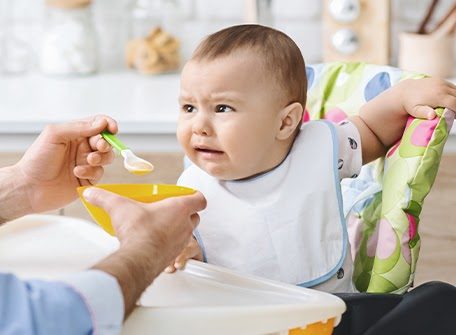Feeding your baby may feel like a futile exercise at some point. Notoriously fussy and obstinate children would prefer to dine on hot dogs, fried chicken, waffles, and chocolate in every meal. So, it is no wonder why they are refusing to eat oatmeal recipes or turning their nose up at the fajita salad or rich baked spaghetti you made.
You are not alone if your baby’s mealtime has become a misery at home. In a recent study, 20% of parents of 2 to 5 years old have described their sweethearts as picky eaters. However, the poor eating habits of all kids might not be necessarily made by choice. For some, eating can be a daily struggle that may significantly impact their health. Due to this reason, all new parents are advised to be aware of the indications that might mean their baby needs feeding therapy. So, keep your eyes open for the below signs.
Delay in Your Child’s Growth
Despite parents’ best effort of feeding their babies, some kids don’t show any significant sign of growth. Are yours one of them? If your child’s siblings have a different growth pattern and your baby seems smaller in their comparison, then chances are feeding is an issue for him. However, do not jump to any conclusion yet. Go through the other signs mentioned in this post to understand whether your toddler needs child feeding therapy or not.
Frequent Gagging or Vomiting While Eating
Watching your child gagging on the delicious food you took half the day to make is heart-aching. But keeping feelings aside, parents need to think that it could indicate a feeding problem, especially if your child pukes or gags frequently. It is essential to know that toddlers with feeding disorders may gag almost every day or even vomit while transitioning to solid foods. Please note that issues with chewing before swallowing can also result in the same. So, we would recommend visiting a certified feeding therapist for a check-up because only a specialist can find the root cause of the problem and treat it.
Mealtime Tantrums and Rejection
Feeding your toddler may seem messy in general, but you should not take it lightly if the menace goes beyond the limit and crosses the edge of suffering or discomfort. If your baby refuses to sit in his highchair and continue throwing his utensils, meal, or entire plate, he is most likely trying to communicate that eating is difficult for him. Feeding therapy for children is the best solution for those who show signs of discomfort and distress while eating.
Don’t delay visiting a paediatric feeding therapist if you notice the above signs in your little one. Hope Abilitation Medical Center is one of the best clinics offering goal-oriented paediatric feeding therapy in Dubai. All our feeding therapists are well trained and experienced. With oral-motor treatment, utmost care, and specialised sensory, we can help your sweetheart overcome feeding disorder and make mealtime enjoyable for all.



